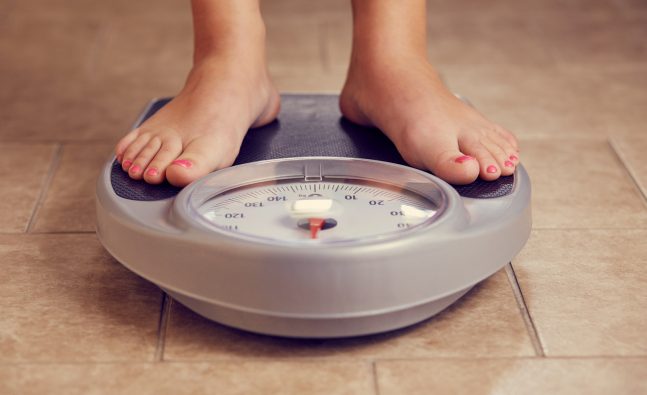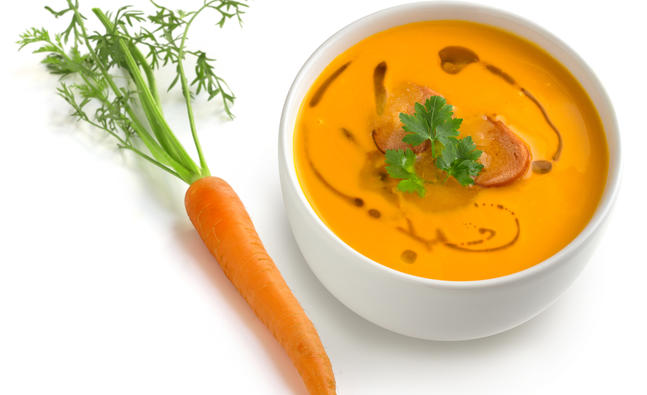The Secret Ingredient That Kills Cravings
This article was written by Julia Westbrook and provided by our partners at Rodale News.
You know that cheesy pizza slice is no good for your health (or waistline), but that doesn't make you want it any less. This battle is often described as one that takes place between your mind and your heart, but really, it's all happening in your head.
"It wasn't very many years ago that we thought the brain was fixed, but now we know neuroplasticity is a part of what makes us who we are," says Dave Apsrey, author of The Bulletproof Diet (published by Women’s Health’s parent company, Rodale). "Knowing you can learn to prefer foods that are healthy for you and to simply not care about things you used to crave can provide a huge source of hope for people."
Asprey himself is an example of why neurology and weight loss go hand in hand, as collecting data on how his brain worked was crucial to his personal transformation. "I'm to the point that someone can put junk food on the table in front of me and I no longer get an urge to eat it," he says. "My brain simply notes that there is something on the table that is not food, like a piece of paper or a flower arrangement. But if you put some smoked wild salmon or grass-fed steak or vegetables and guacamole on the table, my brain lights up! And as a former 300-pound obese man who has lost 100 pounds, that gives me great satisfaction!"
More from Rodale News: Control Your Cravings With a Healthier Gut
Controlling cravings comes down to what you've already put in your body, says Asprey. "Healthy fat, especially saturated fat like grass-fed butter or coconut oil or the extract of coconut oil I use called Brain Octane, will dramatically turn off food cravings," he says. "If you feel a craving, an insatiable hunger, it's your body asking for fuel, and denying it will cause stress and make your hormones work less efficiently. So when you feel a craving, your job is to ask yourself what you ate, or did, in the last four hours to cause it. The odds are, it's from eating the wrong thing."
By minimizing food cravings, you're rewiring your reward pathway away from junk food and towards healthy choices.
Asprey notes that it's important to distinguish between real hunger and cravings to get the full benefit of brain training. "The real problem is that most people have no idea which foods cause the inflammation and cravings, so they gain weight, which makes for more inflammation and more cravings," he says. "It could actually be harmful to train your brain to ignore hunger. Hunger—real hunger as opposed to chemical-induced cravings from foods like MSG or corn oil—is a useful biological signal, and staying hungry all the time tells your biology that a famine is happening. That's not good for your hormones."
More from Rodale News: 21 Ways to Feed Your Brain
-
5 Tempting winter breakfast ideas
-
Be sure to eat if you want to lose!
-
How Many Litres Of Water Should You Drink Daily To Lose Weight?
Are you on a weight loss program? Want to get back to your slimmest se
-
Exercise tips for weight loss: Run on empty
-
How to Calculate How Many Calories You REALLY Need
As anyone who has ever struggled with the scale knows, weight-loss suc
-
These 7 Women Prove Its Possible to Make Weight Loss FUN
If youre trying to get in shape and lose some weight, you might find y
- DON'T MISS
- What I Learned at a Weight-Loss Retreat That Helped Me Lose Over 50 Pounds
- Successful dieting is all about timing...
- The Ingredient Thats Crucial For Weight Loss
- 10 REASONS YOUR DIET MIGHT NOT BE WORKING
- 8 Easy Ways To Lose A Pounds In Just A Day
- 6 Easy steps to get rid of the holiday bloat
- Why We All Just Need to Relax About Holiday Weight Gain
- Throwback: Celebs before and after weight loss
- Are you feeling left out on your diet?
- Yoga exercise to help you burn calories




